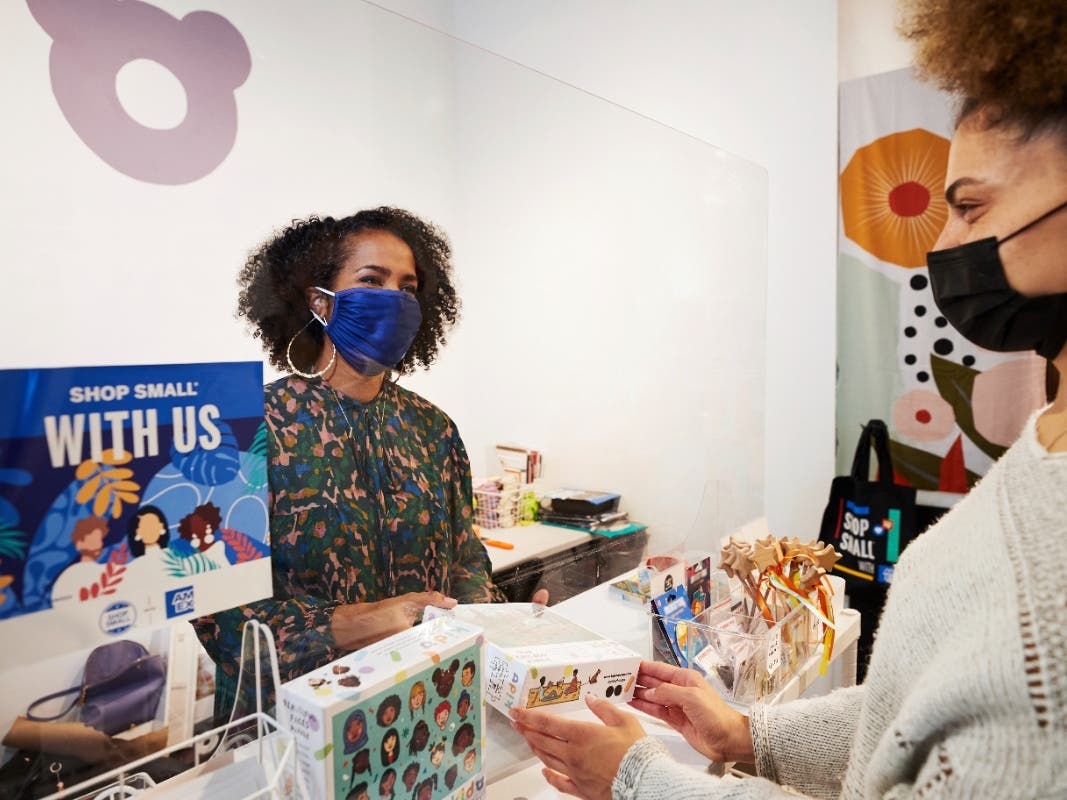Business & Tech
Small Business Saturday 2021: 'Shop Small' In Oak Forest
Small Business Saturday has never been more important as Oak Forest small businesses pull themselves out of the pandemic.

OAK FOREST, IL — Local businesses in Oak Forest hope to make the most of Small Business Saturday and other promotions as the coronavirus pandemic continues to redefine the holiday shopping season.
Independently owned boutiques, gift shops, mom-and-pop hardware stores, restaurants and the like in Oak Forest are facing unprecedented challenges as the ongoing coronavirus pandemic changes how Americans do their holiday shopping.
The list of local businesses participating in Small Business Saturday in Oak Forest continues to grow. Here are a few of them:
Find out what's happening in Oak Forestwith free, real-time updates from Patch.
Find out what's happening in Oak Forestwith free, real-time updates from Patch.
American Express launched the "Shop Small" movement in 2010 to encourage people to support local businesses on the Saturday after Thanksgiving and Black Friday. Since then, it has evolved into a year-round effort to encourage people to support the mom-and-pop businesses and local shops in Oak Forest and elsewhere around the country.
Last year, Americans spent about $20 billion on Small Business Saturday, up slightly from the year before.
Supporting local businesses is important, according to American Express, which estimates that 67 cents of every $1 spent remains in the local community. That amounts to about $67 billion that has stayed in local communities since Small Business Saturday began, according to the financial services company.
A Shop Small Consumer Impact survey from American Express before the pandemic found that 73 percent of people think empty storefronts are a national issue, and 84 percent agree the increase in empty storefronts and the closings of small, independently owned businesses negatively affect their local communities.
The survey showed that when consumers are aware of the impact of spending their dollars locally, 75 percent said they would be more likely to purchase a product or service from small, independently owned businesses.
Small businesses have been pummeled by the pandemic, according to a study by economist Susan Woodward. The study looked at the bank deposits of nearly 1 million small businesses with 10 or fewer employees, from every major sector and industry, during the first year of the pandemic.
The study, commissioned by Intuit QuickBooks, looked at bank deposits by the approximately 1 million small businesses using the company's software and anonymized, aggregated data from the users.
In Illinois, small business was down 25 percent in the first full year of the pandemic.
Retailers and personal care businesses, such as barbers and hair salons, were among the businesses hardest hit by the pandemic, but have enjoyed a stronger recovery than other sectors, according to the study.
- Personal care businesses saw their revenue fall by more than half (52 percent) at the beginning of the pandemic, but by March 2021 reported revenue 16 percent above pre-pandemic levels.
- Clothing stores reported in April 2020 their revenue had decreased by 50 percent, or about $10,000 per business. In March 2021, revenues were 14 percent above pre-pandemic levels.
In general, Woodward's study also showed:
- The pandemic's biggest impact on small business revenue was in April 2020, when revenues fell by 22 percent nationwide, equivalent to $4.6 billion for that month alone.
- The top performers over the past year are home improvement and real estate businesses. The annual revenue of mortgage bankers increased by 30 percent compared with pre-pandemic levels — an average increase of $147,000 per business.
- The recreation industry had some of the hardest-hit small businesses. For example, annual revenues at bowling alleys were down 33 percent by the end of March 2021, an average drop of more than $250,000 per business.
- Small businesses in high-density urban areas — especially in states located on the East and West coasts — experienced a greater financial impact from the pandemic. Areas hit the hardest include New York City, especially Brooklyn, and San Francisco.
Get more local news delivered straight to your inbox. Sign up for free Patch newsletters and alerts.